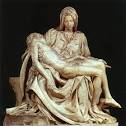https://www.youtube.com/watch?v=xTPhJoXoxfU
Mothers’ Day? Yes, okay, that’s the way the world seems to want it, and I don’t deny the value of appreciating mothers and motherliness. If were preaching today, I wouldn’t wait for the Gospel to be read before I spoke about it. Rather, I’d be introducing it and then inviting the congregation to sit back, clear the chit-chat rubbish from their minds, forget about their aches and pains and even Covid-19, and listen hard.
This is because John Chapter 9 is such a remarkable document, and I wouldn’t want anyone reading or listening to it being read aloud to miss out on at least SOMETHING of the acuteness of its perception, the suppressed, wry humour of the storytelling as the plot unfolds, and the power of the glorious mystery it reveals.
John 9 testifies to the healing and transforming power that Jesus exhibited during his years of preaching and teaching.
It testifies also to the childlike way in which St. John shares with his readers his deeply felt grasp of something no words can express: Jesus is both human and divine. He is going to tell us yet another story of an occasion on which Jesus revealed himself to be God’s Word made flesh - God’s way of being human.
So, as it being read, look at Jesus, watch him, listen to him. Take in the atmosphere of concern and care that surrounds him as he meets with the man who had been blind since birth and gives him the gift of sight.
“As he walked along, he saw a man blind from birth. His disciples asked him, ‘Rabbi, who sinned, this man or his parents, that he was born blind?’ Jesus answered, ‘Neither this man nor his parents sinned; he was born blind so that God’s works might be revealed in him. We must work the works of him who sent me while it is day; night is coming when no one can work. As long as I am in the world, I am the light of the world.’ When he had said this, he spat on the ground and made mud with the saliva and spread the mud on the man’s eyes, saying to him, ‘Go, wash in the pool of Siloam’ (which means Sent). Then he went and washed and came back able to see. The neighbours and those who had seen him before as a beggar began to ask, ‘Is this not the man who used to sit and beg?’ Some were saying, ‘It is he.’ Others were saying, ‘No, but it is someone like him.’ He kept saying, ‘I am the man.’ But they kept asking him, ‘Then how were your eyes opened?’ He answered, ‘The man called Jesus made mud, spread it on my eyes, and said to me, “Go to Siloam and wash.” Then I went and washed and received my sight.’ They said to him, ‘Where is he?’ He said, ‘I do not know.
Notice what Jesus does as well as what he says. Are there health and safety issues here?
Notice how the man himself reacts to Jesus. Why did he go off to the pool of Siloam? And why did he come back?
Notice how the others present on the scene react. Are they merely being curious, or do they reaaly want to know?
Notice the reaction of the pharisees and the man’s parents:
“They brought to the Pharisees the man who had formerly been blind. Now it was a sabbath day when Jesus made the mud and opened his eyes. Then the Pharisees also began to ask him how he had received his sight. He said to them, ‘He put mud on my eyes. Then I washed, and now I see.’ Some of the Pharisees said, ‘This man is not from God, for he does not observe the sabbath.’ But others said, ‘How can a man who is a sinner perform such signs?’ And they were divided. So they said again to the blind man, ‘What do you say about him? It was your eyes he opened.’ He said, ‘He is a prophet.’”
The Jews did not believe that he had been blind and had received his sight until they called the parents of the man who had received his sight and asked them, ‘Is this your son, who you say was born blind? How then does he now see?’ His parents answered, ‘We know that this is our son, and that he was born blind; but we do not know how it is that now he sees, nor do we know who opened his eyes. Ask him; he is of age. He will speak for himself.’ His parents said this because they were afraid of the Jews; for the Jews had already agreed that anyone who confessed Jesus to be the Messiah would be put out of the synagogue. Therefore his parents said, ‘He is of age; ask him.’
Is John beginning to enjoy being able to rub spiritual salt into the wound as he records how Moses is brought into the discussion by the name-dropping Pharisees? (Let’s not blame him.):
“So for the second time they called the man who had been blind, and they said to him, ‘Give glory to God! We know that this man is a sinner.’ He answered, ‘I do not know whether he is a sinner. One thing I do know, that though I was blind, now I see.’ They said to him, ‘What did he do to you? How did he open your eyes?’ He answered them, ‘I have told you already, and you would not listen. Why do you want to hear it again? Do you also want to become his disciples?’ Then they reviled him, saying, ‘You are his disciple, but we are disciples of Moses. We know that God has spoken to Moses, but as for this man, we do not know where he comes from.’ The man answered, ‘Here is an astonishing thing! You do not know where he comes from, and yet he opened my eyes. We know that God does not listen to sinners, but he does listen to one who worships him and obeys his will. Never since the world began has it been heard that anyone opened the eyes of a person born blind. If this man were not from God, he could do nothing.’ They answered him, ‘You were born entirely in sins, and are you trying to teach us?’ And they drove him out.”
What is the difference between the name of Moses and the name of Jesus?
Jesus heard that they had driven him out, and when he found him, he said, ‘Do you believe in the Son of Man?’ He answered, ‘And who is he, sir? Tell me, so that I may believe in him.’ Jesus said to him, ‘You have seen him, and the one speaking with you is he.’ He said, ‘Lord, I believe.’ And he worshipped him. Jesus said, ‘I came into this world for judgement so that those who do not see may see, and those who do see may become blind.’ Some of the Pharisees near him heard this and said to him, ‘Surely we are not blind, are we?’ Jesus said to them, ‘If you were blind, you would not have sin. But now that you say, “We see”, your sin remains.
Are there are none so blind as those who will not see? Or is this business about Jesus being the Son of God just fake news that has persisted for centuries and provided the excuse for untold violence and bloodshed as man’s inhumanity to man simply complements nature red in tooth and claw?

